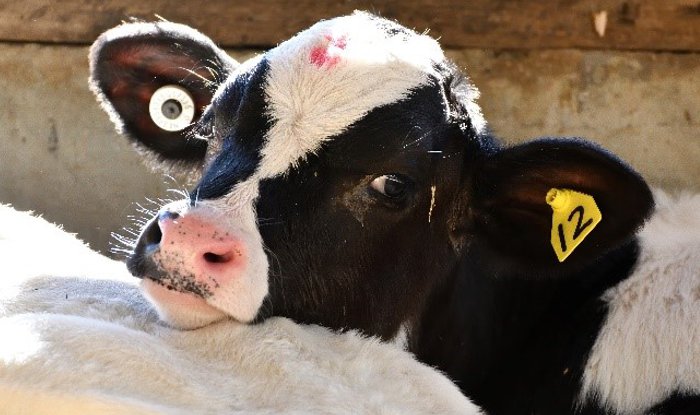Scours and respiratory diseases are common causes of death in young calves. Currently, calves with scours or respiratory disease are often treated on the basis of symptoms, without identifying the microbe responsible.
This project aims to build a genetic catalogue that can be used by diagnostic laboratories to improve their capacity for diagnosing pathogens causing disease and determine the most appropriate treatment.
This project is closely linked with Dairy UP’s P2b project – Early Alerts.
View infectious disease factsheets

Benefits
Early treatment, with the correct therapy is a critical step in avoiding the unnecessary use of antibiotics and preventing antimicrobial resistance.
Although this work is focussed on calf scours and respiratory diseases in NSW dairy calves, the findings have the potential for broader application. For example, the diagnostic tools developed may be relevant to dairy regions outside NSW.
The work will also enable early identification of new microbial variants or non-local variants that may have a significant impact on the industry.
This may be increasingly important in a future with extreme weather events as the ecological imbalances in the environment resulting from these weather events is predicted to further affect the occurrence of infectious diseases.
Progress/Resources
Infectious Diseases Factsheets
Project Update December 2025
Diagnosing scours and respiratory diseases in calves
Abstract (2025 American Dairy Science Association)
The enteric and respiratory viral diversity of calves in health and disease – a state-wide metatranscriptomic study.
Abstract (2025 American Dairy Science Association)
Genetic diversity of Bovine Rotavirus in Dairy Calves with and without diarrhoea in New South Wales, Australia.
Abstract (2025 American Dairy Science Association)
Microbial diversity using meta-transcriptomics in dairy calves: an insight of the resistome and virulome in health and enteric disease
Progress Update February 2022
A pilot study was conducted in 2021 which involved collecting nasal and faecal swabs from two NSW dairy farms. The results from this work will inform the design of the broader project with representative samples from NSW dairy farms. A new microbe of potential interest has already been identified.
Project Update July 2023
Dairy UP’s Infectious Diseases project has made significant progress recently. As at July 2023, more than 1800 swabs have been collected from about 550 cows and calves on 26 farms. Analysis of samples is underway, while sampling from more farms continues. Initial analysis has identified a number of viruses that have not been recently studied . The next step is to determine if these viruses have a role in disease.
Related Articles
Project Lead

Dr Barbara Brito Rodriguez
Veterinary Research Officer | Elizabeth Macarthur Agricultural Institute | NSW Department of Primary Industries and Regional Development
You can help
If you are interested in this project or think you may want to be involved at some stage, please contact Barbara Brito Rodriquez at DPIRD on barbara.britorodriguez@dpi.nsw.gov.au
Project Team:
-
- Dr Ian Lean – Scibus – ianl@scibus.com.au
- Dr Helen Golder – Scibus – heleng@scibus.com.au
Collaborators/Contributors:
-
- Aleksandra Ola – UTS PhD Student
- David Sheedy – USyd PhD Student
- John Webster
- Joyce To – UTS
- Karen Smith – EMAI
- Monica Suann – EMAI
- Sopheak Hem – UTS
- Steve Djordjevic – UTS
- Zain UI Abedien – UTS PhD Student
For more information contact Dr Ian Lean (ianl@scibus.com.au) or Prof. Yani Garcia (sergio.garcia@sydney.edu.au). This research is funded by the Dairy UP initiative (https://dairyup.com.au/) and it is expected to benefit all farmers with kikuyu pastures.

